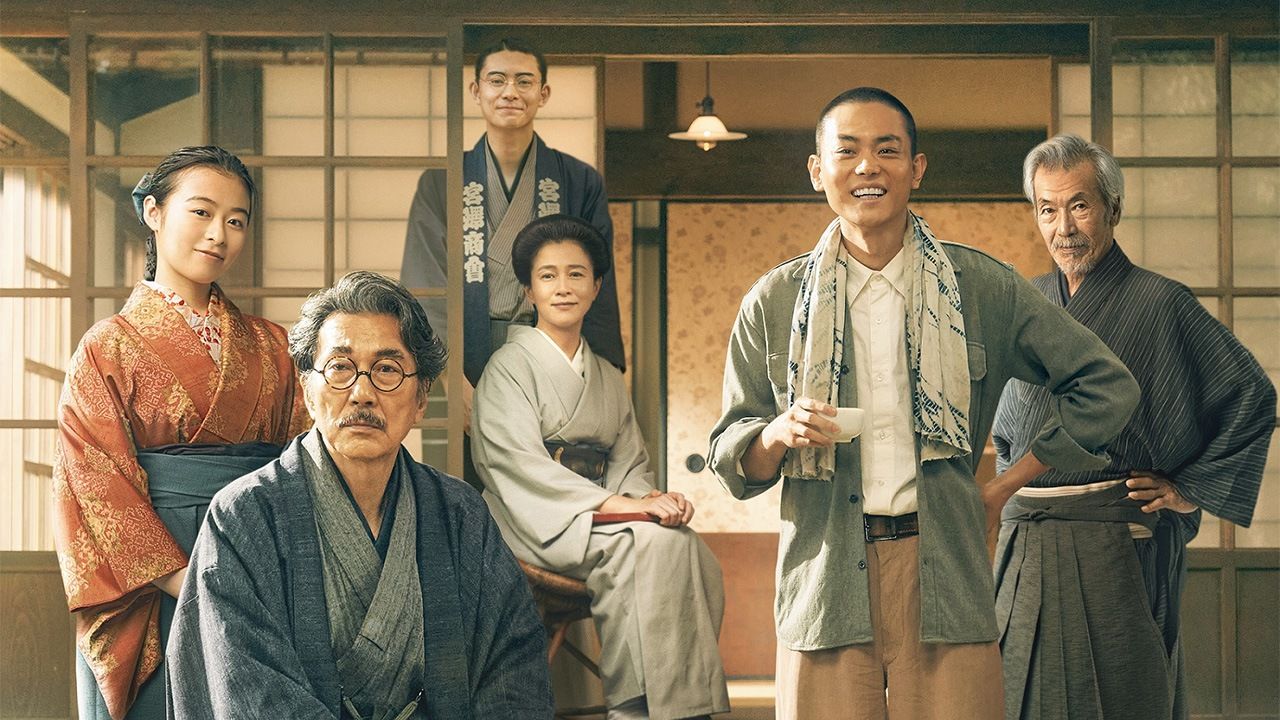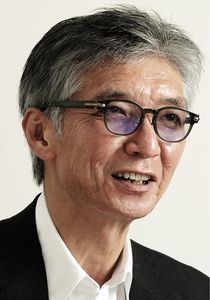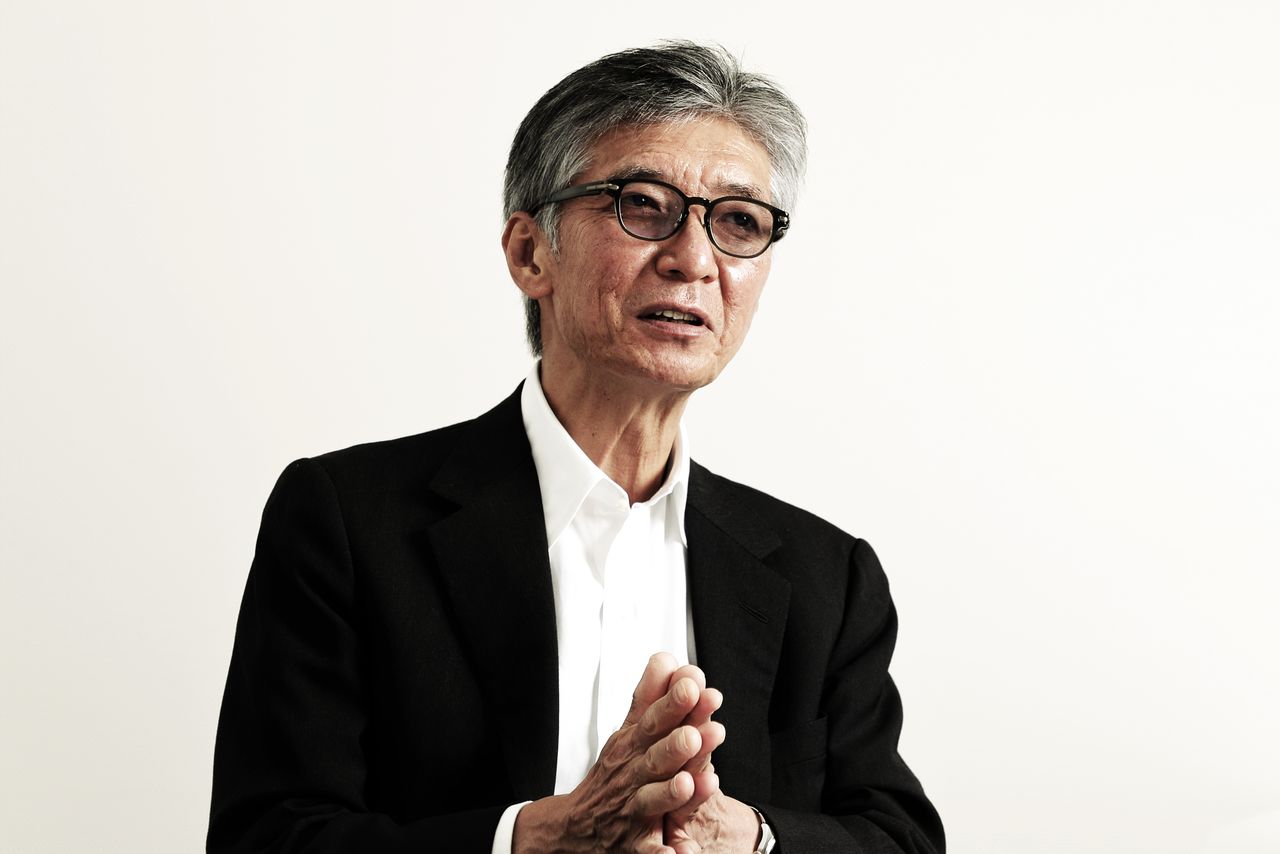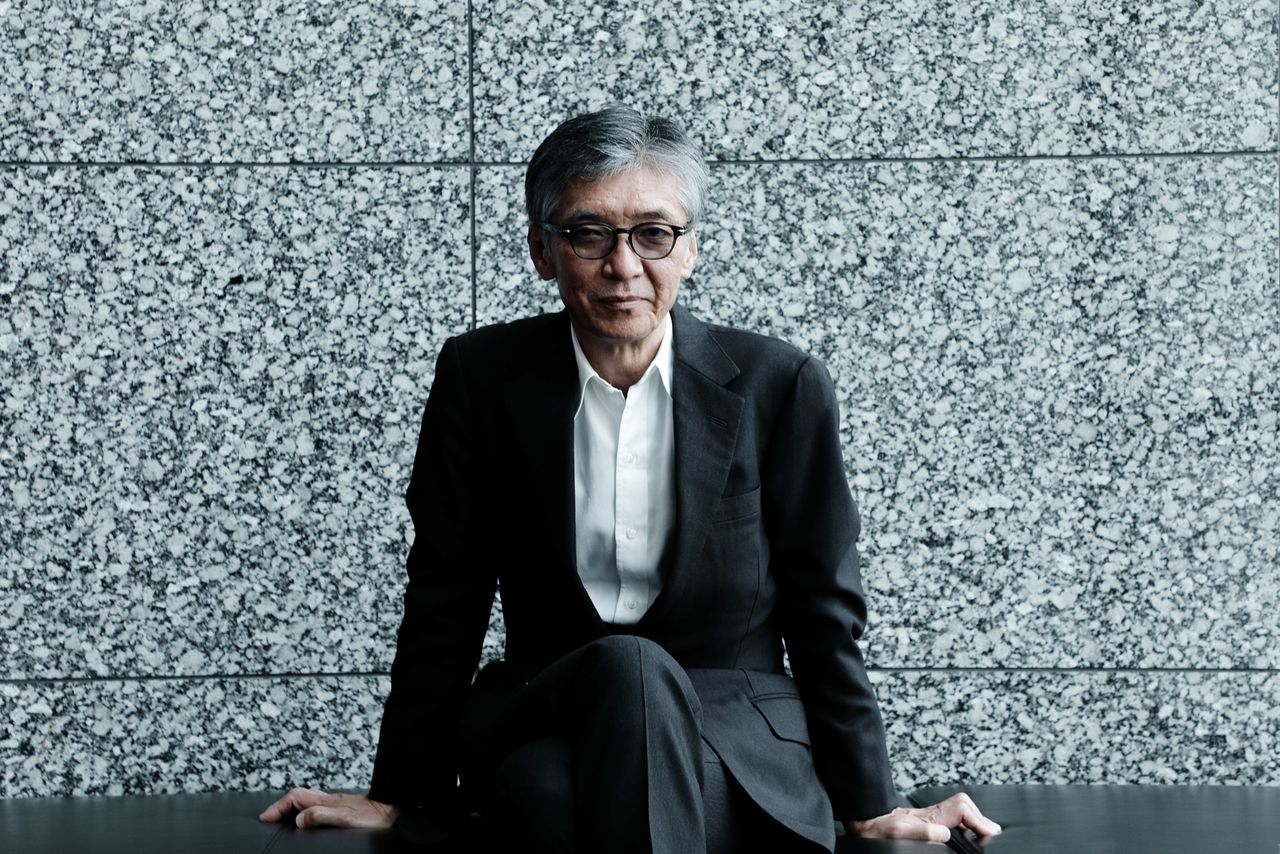
“Father of the Galactic Railroad” Director Narushima Izuru on Bringing Miyazawa Kenji’s Family Story to the Big Screen
Cinema Books- English
- 日本語
- 简体字
- 繁體字
- Français
- Español
- العربية
- Русский
Miyazawa Kenji etched his name on Japan’s literary history with influential novels like Ginga tetsudō no yoru (trans. Night on the Galactic Railroad) and stories including “Chūmon no ōi ryōriten” (trans. “The Restaurant of Many Orders”), and poems like “Haru to shura” (“Spring and Pandemonium”). Born in 1896 in Hanamaki, Iwate Prefecture, he was the son of a wealthy pawn broker, but avoided taking on the family business in favor of a career in academia.
While he was studying at Morioka Agriculture and Forestry College, now the Faculty of Agriculture at Iwate University, he began contributing tanka poems and short stories to a dōjinshi amateur magazine. After graduating, he began working as a lecturer and agricultural engineer, but for roughly a dozen years—until his death from pneumonia in 1933—he continued to write, splitting his time between Hanamaki and Tokyo. He never knew fame in his own lifetime, though, and it was only after his death that the public discovered his great collection of work.

Scene from Ginga tetsudō no chichi (Father of the Galactic Railroad). Miyazawa, played by Suda Masaki, intently writes stories to read to his ill sister, Toshi. (© 2022 Ginga tetsudō no chichi Production Committee)
Miyazawa’s short life of only 37 years has been well chronicled in detailed records and statements from those involved in it and is deeply familiar to enthusiasts. However, the 2017 novel Ginga tetsudō no chichi (Father of the Galactic Railroad) by Kadoi Yoshinobu took another angle to shed light on the story. Although it is undoubtedly a work of the imagination, it is based on careful study of documentary materials and incorporates actual events. It is a story of a naive young Kenji and his family told from the viewpoint of his father, Masajirō.
Bringing Masajirō to Life
Director Narushima says he stumbled on it at a bookstore. “From the start, I liked Miyazawa Kenji as a person and an artist, and I have been thinking about making a movie about him for some time. But just as I was finding that there were all kinds of issues that made it tricky to film, I encountered this book.”
Narushima had already read many biographies of Kenji but was struck by the newness of this one.
“Masajirō had always been depicted as a very strict father. But when you read this novel, you see how he loved his children and worked to raise them. I found that interesting. Kadoi researches his stories deeply before he writes, so it’s not just all made up. When you look at the background, it all comes together. In the end, Masajirō made it possible for Kenji to live the life he wanted. I think it’s astonishing that such a father actually existed in those days.”

Masajirō (Played by Yakusho Kōji) returns from a business trip on learning of his first child’s birth. His own father, Kisuke (played by Tanaka Min), and wife Ichi (Sakai Maki) share in the joy. (© 2022 Ginga tetsudō no chichi Production Committee)
The film covers a time when Kenji suffered from dysentery as a child, notes the director: “At the time, it would have been seen as shameful for a father to care for a hospitalized child. But Masajirō ignored what others thought and even what his own father said and stayed with his son. He ended up contracting gastroenteritis himself, and for most of the rest of his life was only able to eat porridge during the summer. I liked that he cared so deeply for Kenji, without any regrets.”
It was Kisuke, Masajirō's father and Kenji’s grandfather, who was a bit more old-fashioned, says Narushima. “The Miyazawa family was originally in the clothing business, but Kisuke branched off and became a pawnbroker. He was a forthright, hardheaded man, it seems. The book depicts him as being something of a weight on his family. Masajirō had been one of the brightest minds in Hanamaki, but Kisuke told him ‘A pawnbroker doesn’t need an education,’ and he joined the family business. So, I think he likely wanted to help Kenji be able to do what he couldn’t.”

World-class dancer Tanaka Min plays Kenji’s grandfather, Kisuke. (© 2022 Ginga tetsudō no chichi Production Committee)
This does not necessarily mean, though, that Masajirō became more indulgent with his son in reaction to his own father’s strictness.
“There are lots of statements from people who say that Masajirō tried to get Kenji to carry on the family business as the oldest son. Kenji just didn’t listen to him. The stories of their arguments are famous, and the records say that one in particular got really big. That one argument was so bad, in fact, that it left Masajirō with a lasting reputation as a strict father. But he did end up accepting his son’s desire. That’s what’s so amazing.”
Ahead of Their Time
Masajirō was a prominent figure who worked for the local good outside of his business, too, as a town councilor and public affairs committee member. It appears that he studied a lot, trying to stay ahead of the times. “What was most impressive,” though, says Narushima, “was that in a time before even telephones, he made his fortune trading stocks from the countryside in Hanamaki. He built a strong intelligence network of his very own. He went to Kyoto to procure kimono, held Buddhist training sessions, and traveled all over. He seems to have been a pretty progressive person.”

Kenji, whose ideas were hard for others to grasp, often clashed with Masajirō. (© 2022 Ginga tetsudō no chichi Production Committee)
Kenji’s sister, explains the director, is another vitally important figure to understanding his life.
“Toshi went to Tokyo to study at university, which was quite rare for women in those days. She was individualistic, which is of course true of Kenji as well, and was really independent and free. They were a very modern family. I didn’t set out to make them seem like a current family. I honestly think that’s how they really were.”
The movie uses Kenji’s tales and poems to impressive effect in depicting the strong bonds between the brother and sister. “In those days,” says Narushima, “it was usual to read poems out loud, and people used to read to their families a lot. Knowing that, I thought it would be interesting to have Kenji read aloud to his sister. That’s something we can do in a film but not in a novel.”

Kenji reading his work to his sister Toshi (Mori Nana) in her hospital bed. The scene helps audiences rediscover the power of Kenji’s works when read aloud. (© 2022 Ginga tetsudō no chichi Production Committee)
A considerable volume of materials about Kenji have come out, and Narushima has researched them thoroughly, but he says they are all so complicated that it has been difficult to film. Kadoi Yoshinobu’s book, though, offered a new take on Kenji, from the point of view of his father, that opened up new avenues for him. “I thought I could take advantage of this new perspective Kadoi brought. Even while it’s a story about a real historical figure, it’s not some great person’s biography. Rather, it’s a portrait of the way a father views his somewhat hapless son. I think that young people even now can relate to this image of a confused young man, with his soul crying out, ‘Who am I? Where should I go?’”

Kenji, who wrote Sero hiki no Gōshu (Gorsch the Cellist), also played the cello. He loved music and was also Hanamaki’s greatest record collector. (© 2022 Ginga tetsudō no chichi Production Committee)
It’s a different from the usual father-son conflict, he explains. “It was funny seeing how this genius Kenji pushed his father around. So, I tried to keep a lot of humor in this film. Masajirō wasn’t trying to make people laugh. He was fighting sincerely as a father, which is what makes it so funny. There might have been big fights, but I think there was a lot of laughter in that house, too.”
The Acting Skills Bringing It All Together
The actors chosen to depict such a family dynamic are key to the success of the film, of course. But Narushima says that he had a very clear idea of who he wanted early in the process.
“After I finished the novel and the instant I thought of filming it, I decided on Yakusho Kōji as Masajirō and Suda Masaki as Kenji. The usual way is to reach out to potential cast members with an offer once the script is done, but this time I reached out as soon as we’d secured the rights. I went to their agency with the novel and told them I wanted it more than anything. I think they just gave up on resisting. [Laughs]”

This is star Yakusho Kōji’s first role alongside Suda Masaki. (© 2022 Ginga tetsudō no chichi Production Committee)
Yakusho is a known entity to the director, having now appeared in two consecutive films by him, including the 2022 Familia.
“Both films deal with fathers and sons, and although each has completely different times and settings, I wanted to leave some space between them. But the pandemic messed up everyone’s schedule, so filming and release for both ended up close together. But Yakusho did a perfect job at differentiating both roles. Yakusho is a little different from the great actors of the past, in that the character played comes across more strongly than the actor. He does have his own personality, of course, but he has an unusual way of ‘multiplying’ himself by the role.”
In this film, he also plays Masajirō in his twenties, around when Kenji was born. “I didn’t want to double-cast the role, so we ended up asking for something a bit unreasonable, but he did a fantastic job in performance. He was reaching back over forty years, which does seem to have made him a bit nervous. I think it was great, though, how he really brought that vibrancy of youth to his movement. He’s in his mid- to late sixties now, but Yakusho is still growing. Every time we work together on a new project, he brings a performance that feels like his best ever. For a director, working with an actor like that is simply bliss.”
(Originally published in Japanese. Interview photos by Hanai Tomoko. Interview and text by Matsumoto Takuya of Nippon.com.)



